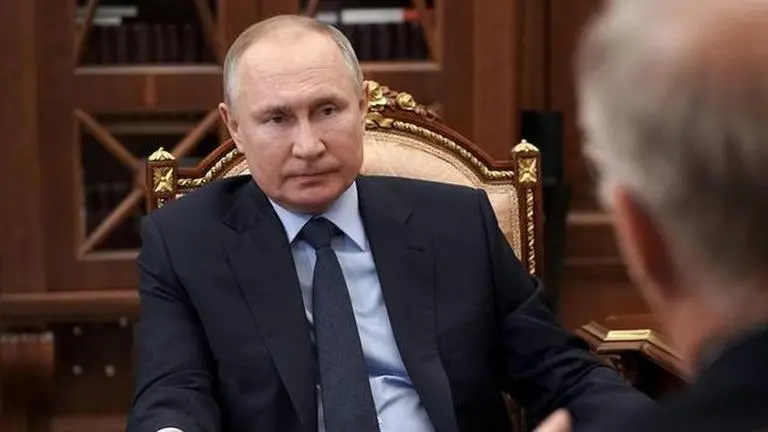Updated 24 April 2023 at 19:47 IST
Will he or won't he? Putin's attendance at BRICS summit in S. Africa remains unconfirmed
The Kremlin has stated that Russian President Vladimir Putin has not yet decided on whether to attend the BRICS conference in South Africa.
- World News
- 2 min read

The Kremlin has stated that Russian President Vladimir Putin will make a decision on whether to attend a BRICS conference in South Africa in August closer to the event. Notably, South Africa, which maintains friendly relations with Russia, would be required to arrest Putin as a party to the International Criminal Court (ICC), which has issued a warrant for his arrest over alleged war crimes in March.
When asked about Putin's potential attendance at the BRICS conference, Kremlin spokesman Dmitry Peskov stated that "appropriate decisions will be made closer to the time." According to a report from Sky News, Peskov also emphasised that Russia will actively participate in the conference, describing the BRICS as a significant association. The BRICS group includes Brazil, Russia, India, China, and South Africa, and is often seen as a powerful emerging-market alternative to Western countries.
International Criminal Court and its power
The International Criminal Court [ICC] is a judicial institution established by the Rome Statute, a multilateral treaty adopted in 1998, with the goal of prosecuting individuals responsible for the most serious crimes that concern the international community as a whole, such as genocide, crimes against humanity, war crimes, and the crime of aggression.
The ICC is headquartered in The Hague, Netherlands, and operates independently from the United Nations [UN] although it has a cooperative relationship with the UN. It is composed of four main organs: the Presidency, the Judicial Divisions, the Office of the Prosecutor, and the Registry. The ICC has jurisdiction over crimes committed on the territory of states parties to the Rome Statute, or by nationals of states parties, or crimes that are referred to it by the UN Security Council.
Advertisement
One of the key questions regarding the ICC's powers is whether it can force the arrest of a head of state. According to the Rome Statute, the ICC has jurisdiction over individuals, regardless of their official capacity, including heads of state or government. However, there are practical and legal challenges when it comes to arresting and prosecuting sitting heads of state.
The ICC does not have its own enforcement mechanism and relies on states for the arrest and surrender of suspects. States that are parties to the Rome Statute are legally obligated to cooperate with the ICC, including the arrest and surrender of suspects. However, some states may refuse to cooperate, citing concerns about sovereignty, political considerations, or other reasons.
Advertisement
Published By : Sagar Kar
Published On: 24 April 2023 at 19:47 IST
